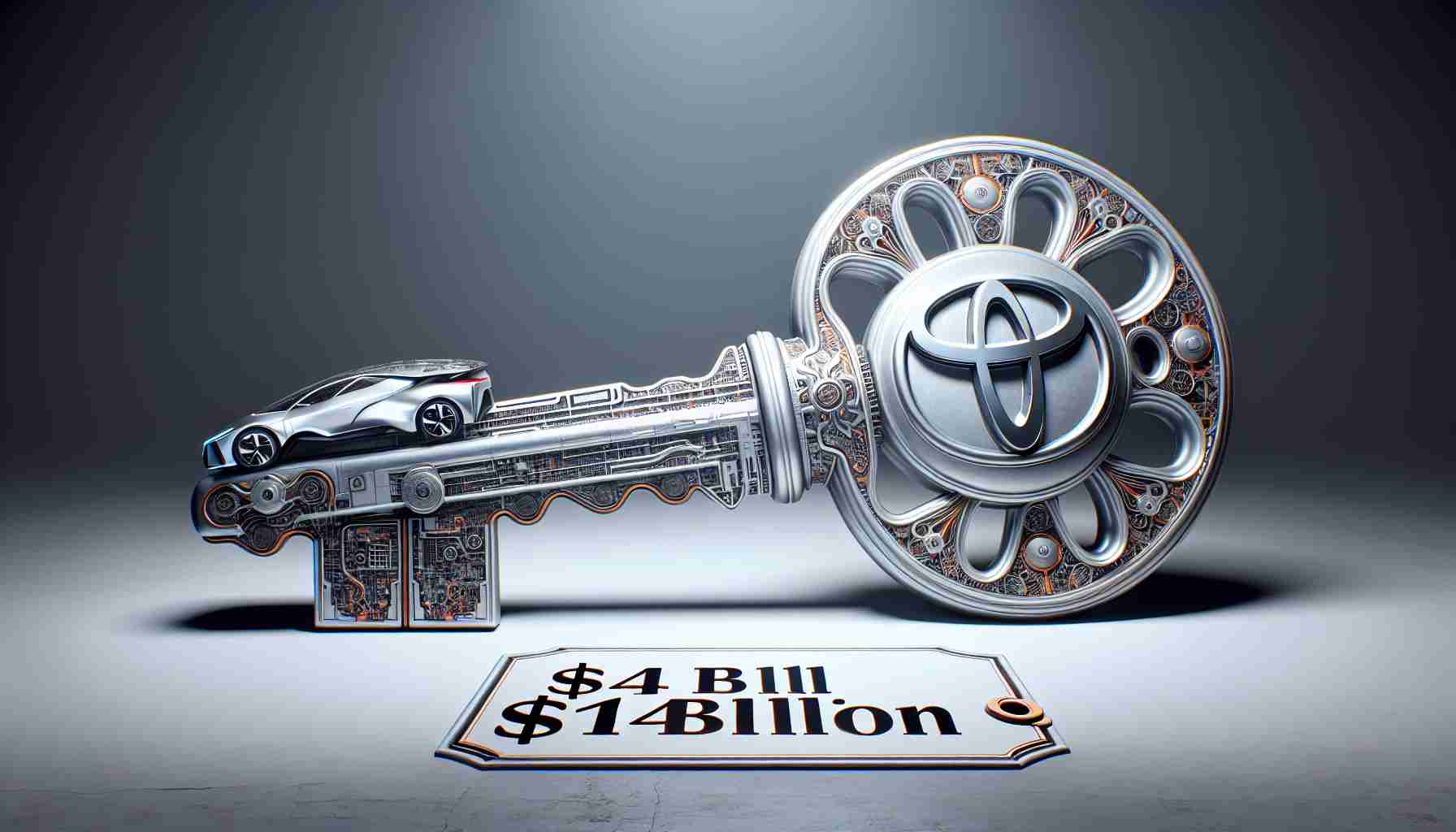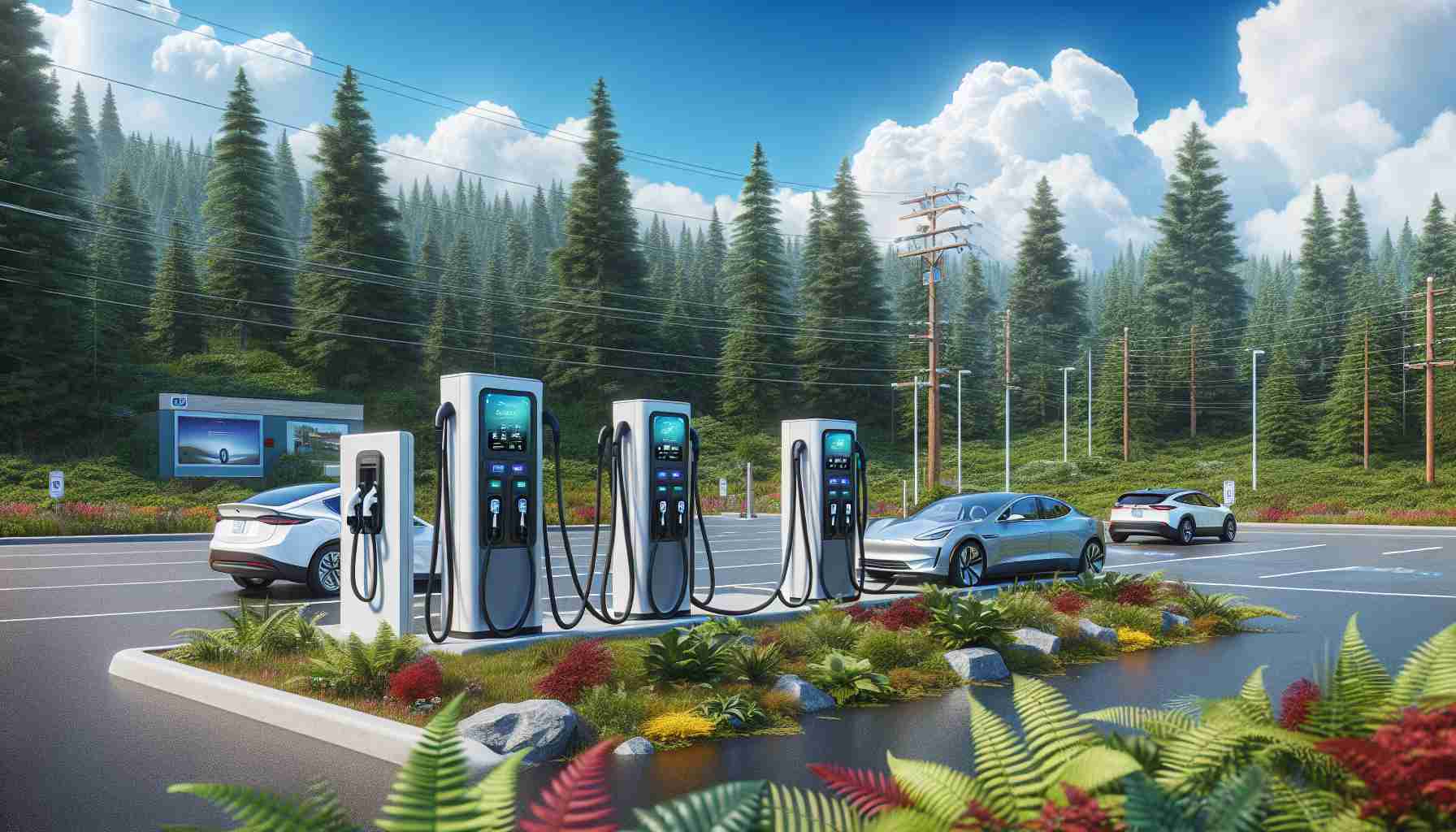- Toyota’s new battery manufacturing plant in North Carolina represents a significant investment in EV technology, totaling $14 billion.
- The facility will span over 7 million square feet, with production set to begin in April and an annual capacity of 30 GWh.
- Approximately 5,000 jobs will be created, supporting the local economy and workforce.
- A new company in Shanghai will focus on producing EVs and batteries for Toyota’s luxury Lexus brand, increasing competition in the Chinese market.
- Toyota is positioning itself to regain market share amid growing competition, particularly from companies like BYD.
- The initiatives demonstrate Toyota’s commitment to innovation and a sustainable future in transportation.
Get ready for a revolution in electric vehicles! Toyota has launched a jaw-dropping $14 billion battery manufacturing plant in North Carolina, marking its first in-house facility outside Japan. Spanning over seven million square feet—the size of 121 football fields—this colossal plant will start producing batteries in April, with an astonishing capacity of 30 GWh annually. It’s set to create around 5,000 jobs, injecting fresh energy into the local economy.
But there’s more! Toyota is also gearing up to unveil a new company in Shanghai dedicated to churning out EVs and batteries exclusively for its luxury Lexus brand. This strategic move is a direct challenge to fierce local competitors like BYD, pushing Toyota to reclaim its standing in the rapidly growing Chinese market.
As the race for electric dominance heats up, Toyota’s ambitious plans signal its commitment to innovation and resilience. Will this giant reign supreme in the cutthroat EV landscape or struggle to catch up? With the world shifting towards sustainable transportation, all eyes are on Toyota to see if this bold path will reignite its legacy in electric mobility.
Stay tuned—it’s an electrifying ride ahead! The future of transportation is changing, and Toyota is determined to lead the charge.
The Game-Changer: Toyota’s Bold Step into the EV Market
Toyota’s New Electric Vehicle Strategy Unveiled
Toyota is making significant investments in the electric vehicle (EV) space, with the establishment of a $14 billion battery manufacturing plant in North Carolina. This marks Toyota’s first in-house battery facility outside of Japan and is poised to reshape the EV landscape. Set to produce batteries with an impressive annual capacity of 30 GWh, the plant will kick off operations in April and is expected to create about 5,000 jobs, providing a major boost to the local economy.
In addition, Toyota is preparing to launch a dedicated unit in Shanghai that will focus on electric vehicles and batteries specifically for its luxury Lexus brand. This strategic maneuvre places Toyota in direct competition with established local rivals like BYD, indicating a robust attempt to reclaim market share in the rapidly evolving Chinese automotive landscape.
Pros and Cons of Toyota’s Approach
# Pros:
– Significant Investment: The $14 billion investment signals a serious commitment to EVs.
– Job Creation: The facility will create thousands of jobs, enhancing local economies.
– In-house Production: Producing batteries in-house could lead to better quality control and reduced supply chain vulnerabilities.
# Cons:
– Competitor Pressure: Local competitors like BYD have established themselves firmly, making it a challenge for Toyota to gain market share quickly.
– Transition to EVs: The shift from traditional gasoline vehicles to electric could require extensive changes within Toyota’s manufacturing processes and culture.
Market Forecasts and Insights
Market forecasts indicate that the global electric vehicle market is expected to grow exponentially in the coming years. According to analysts, the value of the market could reach around $3 trillion by 2030 due to increasing demand for sustainable transportation options. Toyota’s move into EVs is strategically aligned with this forecast, placing them in a key position to capitalize on the growth.
Key Questions
1. How will Toyota’s new battery plant impact the U.S. EV market?
– The plant is likely to enhance production capabilities for U.S.-made EVs, potentially improving availability and reducing costs. This could lead to a wider adoption of electric vehicles among consumers.
2. What strategies will Toyota employ to compete with local manufacturers like BYD in China?
– Toyota plans to leverage its luxury brand, Lexus, and invest in technology to appeal to the preferences of Chinese consumers. Additionally, partnerships and local insights may play a critical role in its strategy.
3. What long-term impact will Toyota’s investments in electric technology have on its traditional vehicle lines?
– As Toyota focuses more on EVs, there may be a gradual phasing out of traditional combustion engine vehicles, aligning with global trends toward sustainability and emissions reduction.
Conclusion
Toyota’s ambitious plans, characterized by major investments and strategic launches, suggest a pivotal moment in the EV market. With its extensive experience in the automotive industry and a newfound focus on electrification, Toyota is setting the stage for potentially dramatic changes in the transportation landscape.
For further insights on Toyota’s developments and innovations, visit Toyota’s official website.



















